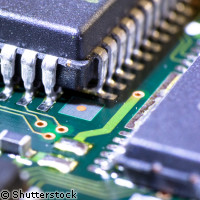HiPEAC Network of Excellence kicks off
With a special kick-off meeting in Gothenburg, Sweden, the European Network of Excellence HiPEAC (High-Performance and Embedded Architecture and Compilation) has now been launched. The network will coordinate nine research clusters that will look into on-chip multi-cores technology and customisation, leading to heterogeneous multi-core systems. According to the project coordinators at the University of Ghent, Belgium, HiPEAC's main objective is to harmonise European research efforts in the area of computer systems by developing a common research vision, as well as organising meetings at regular intervals and stimulating European cooperation. The research clusters will focus on the following nine areas: - multi-core architecture; - programming models and operating systems; - adaptive compilation; - interconnects; - reconfigurable computing; - design methodology and tools; - binary translation and virtualisation; - simulation platform; - compilation platform. Research in computer systems finds itself at a turning point, project partners state: more and more, the supercomputer market, the commodity market, including laptops and other consumer electronics such as mobile phone, PDAs and navigation systems and the embedded market are interconnected. Increasingly, the same components are used in all of these systems, creating new business opportunities for the European computer industry. Yet innovation in the field of high-performance processors is subject to physical limitations. As a result, these processors shifted towards parallelism, using multi-core systems, so that many instructions can be carried out simultaneously. While in theory this shift to parallel computing will increase performance and cut energy consumption at the same time, multi-core structures create new problems for computer architects. The activities envisioned in the network 'will lead to the permanent creation of a solid and integrated virtual centre of excellence consisting of several highly visible departments, and this virtual centre of excellence will have the critical mass to really make a difference for the future of computing systems,' the project partners believe. Between 2008 and 2011, the HiPEAC consortium will receive €4.8 million under the Seventh Framework Programme (FP7). It unites 12 partners from academia and industry in Belgium, France, Germany, Greece, Italy, the Netherlands, Spain, Sweden the UK and Israel, complemented by a number of additional network members from inside and outside the EU.



